Silicon Valley finds remote work is easier to begin than end
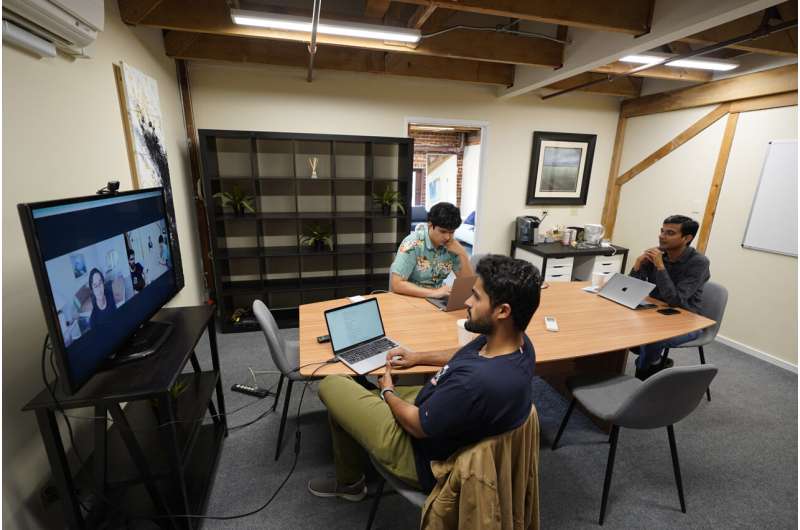
Technology companies that led the charge into remote work as the pandemic unfurled are confronting a new challenge: how, when and even whether they should bring long-isolated employees back to offices that have been designed for teamwork.
"I thought this period of remote work would be the most challenging year-and-half of my career, but it's not," said Brent Hyder, the chief people officer for business software maker Salesforce and its roughly 65,000 employees worldwide. "Getting everything started back up the way it needs to be is proving to be even more difficult."
That transition has been complicated by the rapid spread of the delta variant, which has scrambled the plans many tech companies had for bringing back most of their workers near or after Labor Day weekend. Microsoft has pushed those dates back to October while Apple, Google, Facebook, Amazon and a growing list of others have already decided wait until next year.
Given how they set the tone for remote work, tech companies' return-to-office policies will likely have ripple effects across other industries. Employers' next steps could redefine how and where people work, predicts Laura Boudreau, a Columbia University assistant economics professor who studies workplace issues.
"We have moved beyond the theme of remote work being a temporary thing," Boudreau says. The longer the pandemic has stretched on, she says, the harder it's become to tell employees to come back to the office, particularly full time.
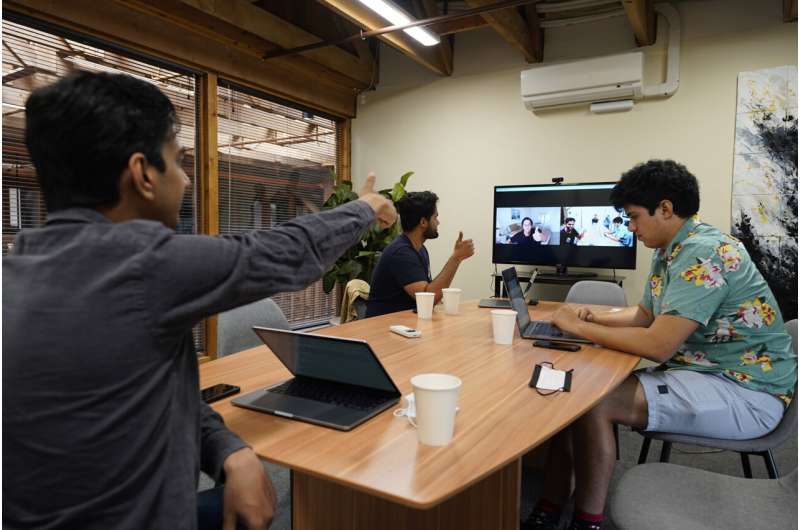
Because they typically revolve around digital and online products, most tech jobs are tailor made for remote work. Yet most major tech companies insist that their employees should be ready to work in the office two or three days each week after the pandemic is over.
The main reason: Tech companies have long believed that employees clustered together in a physical space will swap ideas and spawn innovations that probably wouldn't have happened in isolation. That's one reason tech titans have poured billions of dollars into corporate campuses interspersed with alluring common areas meant to lure employees out of their cubicles and into "casual collisions" that turn into brainstorming sessions.
But the concept of "water cooler innovation" may be overblown, says Christy Lake, chief people officer for business software maker Twilio.
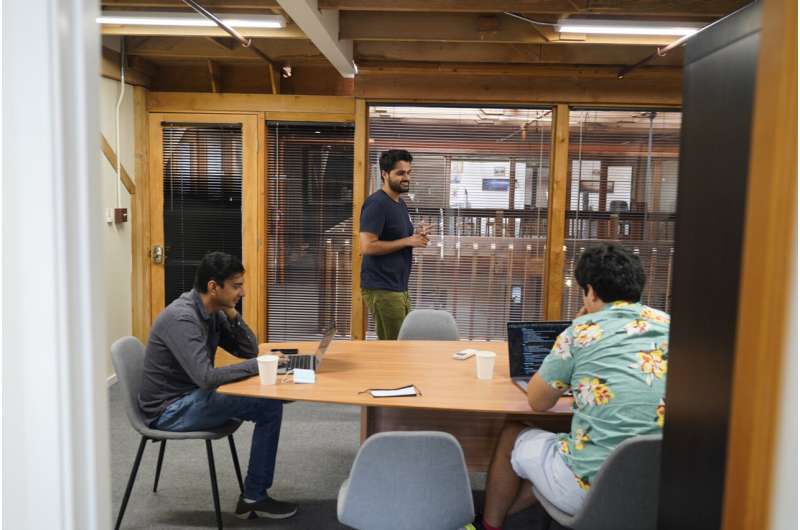
"There is no data that supports that really happens in real life, and yet we all subscribe to it," Lake says. "You can't put the genie back in the bottle and tell people, 'Oh you have to be back in the office or innovation won't happen.' "
Twilio isn't bringing back most of its roughly 6,300 employees back to its offices until early next year at the earliest, and plans to allow most of them to figure how frequently they should come in.
This hybrid approach permitting employees to toggle between remote and in-office work has been widely embraced in the technology industry, particularly among the largest companies with the biggest payrolls.
Nearly two-thirds of the more than 200 companies responding to a mid-July survey in the tech-centric Bay Area said they are expecting their workers to come into the office two or three days each week. Before the pandemic, 70% of these employers required their workers to be in the office, according to the Bay Area Council, a business policy group that commissioned the poll.
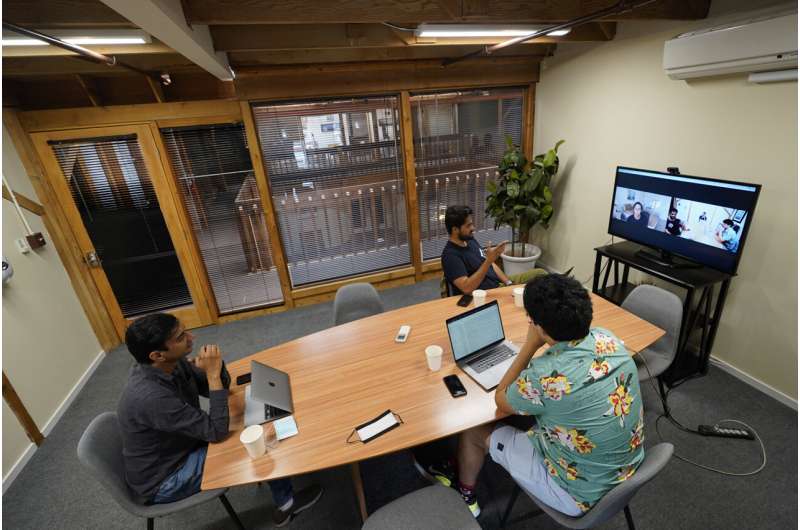
Even Zoom, the Silicon Valley videoconferencing service that saw its revenue and stock price soar during the pandemic, says most of its employees still prefer to come into the office part of the time. "There isn't a one-size-fits-all approach to returning to the office," Kelly Steckelberg, Zoom's chief financial officer, recently wrote in a blog post.
But the biggest tech companies, which have profited even more than Zoom as the pandemic that made their products indispensable for many workers, aren't giving employees much choice in the matter. Apple, Google, Amazon, and Microsoft have made it clear that they want most of their workers together at least a few days each week to maintain their culture and pace of innovation.
That well-worn creed sounds like backward thinking to Ed Zitron, who runs a public relations firm representing technology companies—and which has been fully remote since it launched in 2012.
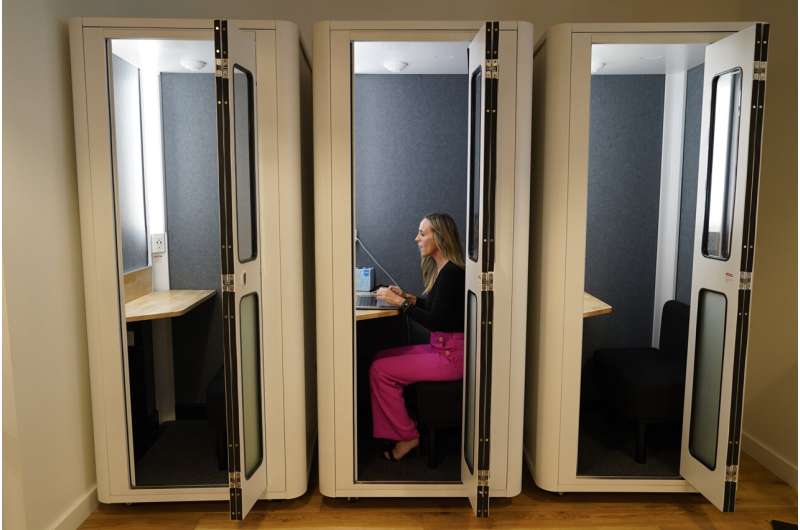
The only reason to have an office, he says, is to satisfy managers with vested interests in grouping people together "so that they can look at them and feel good about the people that they own ... so that they can enjoy that power."
Switching to hybrid work is ideal for people like Kelly Soderlund, a mother of two young children who works in offices in San Francisco and Palo Alto, California, for travel management company TripActions, which has about 1,200 employees worldwide. She couldn't wait to return when the company partially reopened its offices in June, partly because she missed the built-in buffer that her roughly one-hour commute provided between her personal and professional life.
"When I don't have that, I wake up in the morning, I start doing work and I take my kids to their camp or their daycare," Soderlund says. "And then I come back and I work and then we pick them up, make dinner and then I go back to work. So, it feels like it's just work all the time."
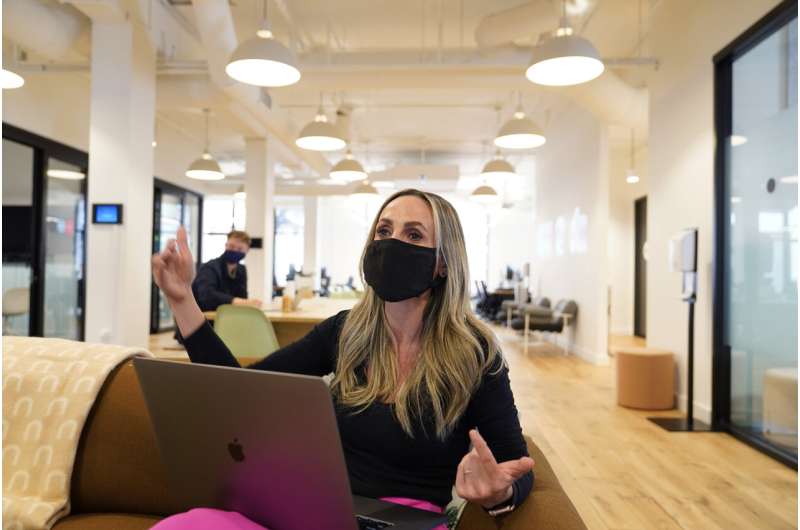
Soderlund believes being together in an office leads to more collaboration, although she also learned from the pandemic that workers don't need to be there every day for teamwork to happen.
Camaraderie and the need to separate work from home are among the top reasons employees at business software maker Adobe cite for coming back to the office, said Gloria Chen, chief people officer for one of Silicon Valley's older companies. Working from home "is here to stay, but we also continue to value people coming together," she said.
The transition from the pandemic should enable smaller tech companies to adopt more flexible work-from-home policies that may help them lure away top-notch engineers from other firms more insistent on having people in the office, says Boudreau, the Columbia University scholar.
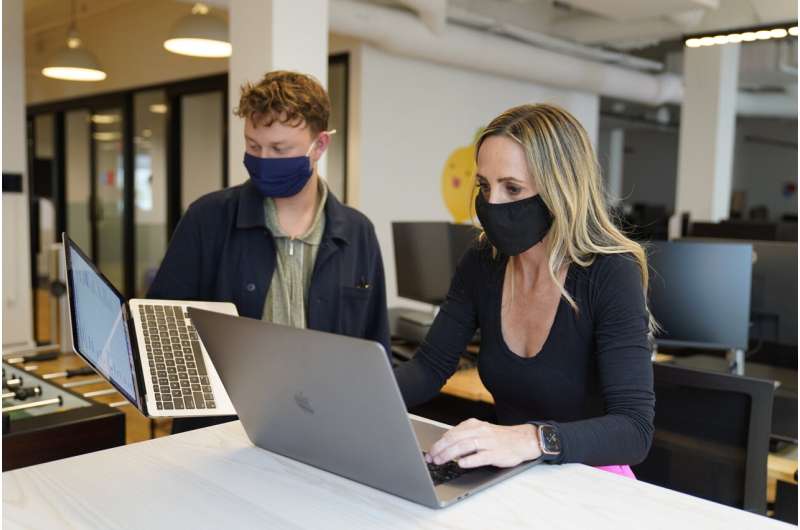
"Labor markets are relatively tight now, so employees have more bargaining chips than they have had in a while," Boudreau says.
Ankur Dahiya, who launched his software startup RunX last year during the pandemic lockdowns, believes that remote work has helped him hire employees that otherwise may not have been candidates. The eight-worker startup rents a San Francisco office one day a week so Dahiya can meet with employees who live nearby, but other employees are in Canada, Nevada, and Oregon. The workers living outside of California have been flying in once every three months for "super productive" meetings and brainstorming, says Dahiya, who has previously worked at Facebook and Twitter.
"I've worked in offices for the last 10 years and I know there's just so much time lost," Dahiya says, recalling all the random conversations, lengthy meetings, aimless wandering, and other disruptions that seem to occur in those settings.
-
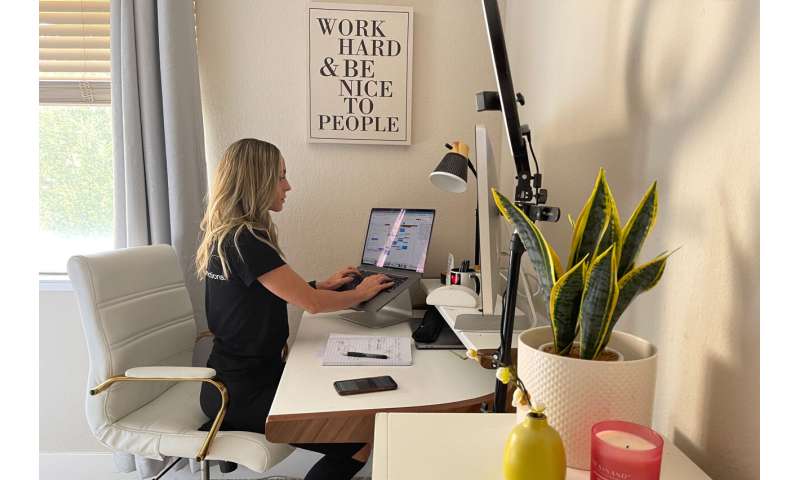
In this photo provided by Kelly Soderlund, shows Kelly working remotely from her home in Walnut Creek, Calif., Thursday, Sept. 2, 2021. Switching to a hybrid work model is ideal for people like Kelly Soderlund, a mother of two young children who works in offices in San Francisco and Palo Alto, California, for TripActions, which has about 1,200 employees worldwide. Credit: Kelly Soderlund via AP -

Kelly Soderlund poses at a workstation in the TripActions office in San Francisco, Friday, Aug. 27, 2021. Switching to a hybrid work model is ideal for people like Soderlund, a mother of two young children who works in offices in San Francisco and Palo Alto, California, for TripActions, which has about 1,200 employees worldwide. Credit: AP Photo/Eric Risberg
Twilio's Lake is hoping the remote-work experience will transform employee behavior in the office, too, once they come back. She hopes that the remote experience will have given employees a chance to better understand how their teams work.
"I think more than anything it is going to cause us to become more intentional about when, why and how we come together," she says.
© 2021 The Associated Press. All rights reserved. This material may not be published, broadcast, rewritten or redistributed without permission.





















